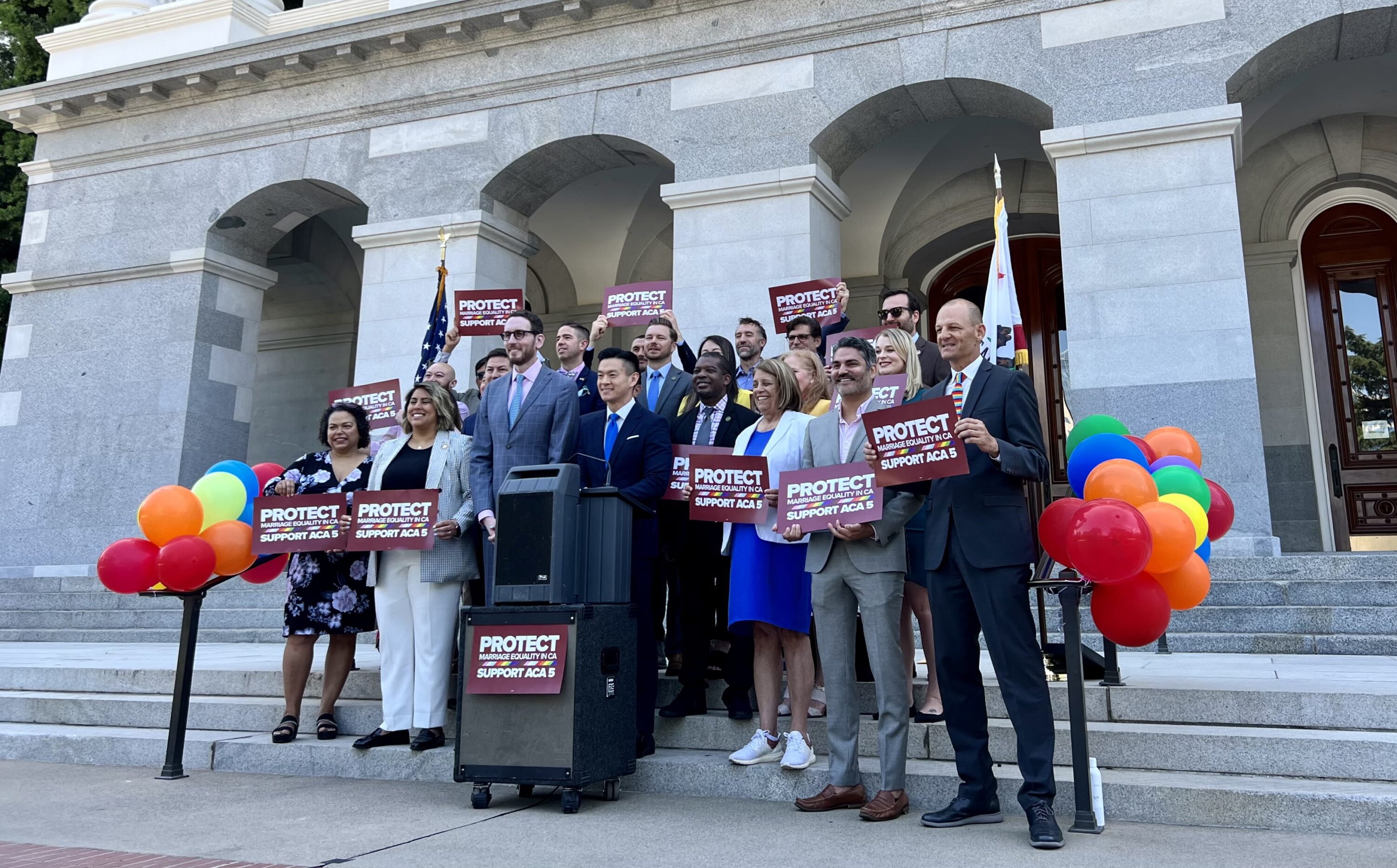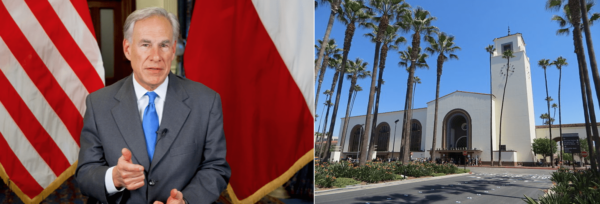Nearly a decade and a half after a divisive vote in California, lawmakers are pushing to rewrite the state’s constitution to protect same-sex marriage. The state Senate took a decisive step Thursday, approving Assembly Constitutional Amendment 5 (ACA 5) on a 31-0 vote. The amendment proposes to wipe out Proposition 8 — a ban on same-sex marriages approved by a slim majority of voters in the Golden State 15 years ago.
Sen. Scott Wilk, R-Santa Clarita, became the lone Republican to vote in the amendment’s favor. The remaining seven Senate Republicans abstained or were absent. Hailing from Los Angeles County, Wilk’s vote teamed with the thirty Democrats in the chamber hit the necessary two-thirds supermajority that sent the measure unopposed to the November 2024 ballot.
The bill’s co-authors, Assemblymember Evan Low, D-Sunnyvale, and Sen. Scott Wiener, D-San Francisco, celebrated the Senate’s move. The sweeping paragraph that could be struck from the state constitution — the essence of Prop 8 — stands in stark contrast to the cultural and legal acceptance of same-sex couples’ right to marry in California, in the United States, and broadly in the Western world.
“Today, with bipartisan support, we are one step closer to ensuring marriage equality as a fundamental right in California,” Low, representing a swathe of Silicon Valley’s diverse communities, said in a statement. “ACA 5 will give voters the opportunity to remove a black stain from the California constitution.”
The landmark Supreme Court ruling in Obergefell v. Hodges cemented a constitutional right to same-sex marriage — Prop 8’s federally mandated invalidation. Despite its toothless effect, Prop 8 has remained a dormant symbol on the books of California law, and only voters can scrub it out.
California stands on the brink of an unprecedented step — a direct confrontation of its own constitutionally codified discrimination. Gov. Gavin Newsom, a Democrat, earlier expressed his support for the move to erase the ban from the state’s legal outlines. “We must remain vigilant to protect our values of equality, freedom and acceptance from the forces of hate that seek to undo our progress,” said Newsom.
Critics and nervous supporters point to Supreme Court Justice Clarence Thomas, who hinted in a statement about the potentially reversible nature of the landmark 2015 gay marriage ruling. The nationwide rollback of LGBTQ+ rights is a chilling perspective that would directly counter the individual states’ trend towards greater inclusivity and equal rights.
Wiener responded squarely: “Next fall, Californians will reject the assault on LGBTQ rights that bigoted, ideological Justices have launched from the Supreme Court.” The senator’s challenge tapped into the pervasive sentiment of protecting minority rights in California that transcends party lines.
Amplifying the bill’s scope, Equality California pointed out that ACA 5’s approval would also provide a safeguard against any future attempts to restrict marriage rights for interracial couples.
In November next year, California’s voters will decide the destiny of Proposition 8 and will have an opportunity to once again enshrine the state’s commitment to the principle of equality and acceptance.







